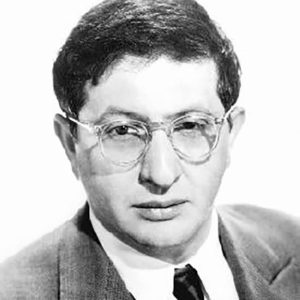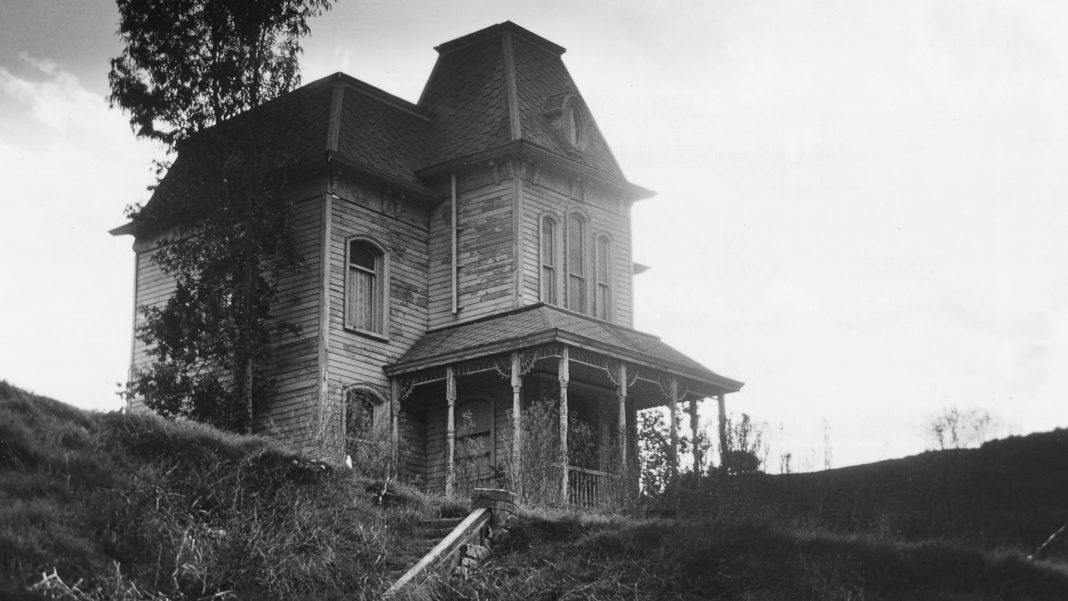Rare was the filmmaker who chose to kill the lead of his movie in the first half. But Alfred Hitchcock did that to Janet Leigh in Psycho. Adding to the impact of that scene was that the film was in black and white, the way it was shot and certainly the music by Bernard Herrmann.

Herrmann composed the scores for seven Hitchcock films: The Trouble With Harry, The Man Who Knew Too Much, The Wrong Man, Vertigo, North by Northwest, Marnie and Psycho.
Starting tonight, LA Opera begins showings of Psycho at the Theatre at the Ace Hotel. Each performance will feature the LA Opera Orchestra performing Herrmann’s score live with the movie. The screenings continue through Halloween.
Note: If you have never seen Psycho, be warned that important plot points are discussed below. Of course, major spoiler in the opening of this column, too.

This felt like a good opportunity to talk to Steven C. Smith who is Bernard Herrmann’s biographer. His book, A Heart at Fire’s Center: The Life and Music of Bernard Herrmann examines the life and work of the Academy Award-winning composer (The Devil and Daniel Webster).
The most recent Sight & Sound list of Best Films of all time puts Psycho in a four-way tie for 35th. Why does this little, low-budget film continue to resonate nearly 60 years after its release?
I think part of the reason it is so successful is that Hitchcock got to make the film he wanted to make. In a few years that wasn’t the case anymore. Hitchcock was a little nervous about it and that’s why the budget was lower and why the music is what it is. Bernard Hermann took what could be a limitation for some and turned it into one of the biggest plusses by writing a score just for strings.
The shower scene with its accompanying music almost didn’t happen. Why do you think Hitchcock originally suggested there be no music for that scene?
When Hitchcock told Herrmann, “please don’t write music in the shower scene,” he was obsessed with the silent murder scene, as he did with Tippi Hedren in The Birds. He envisioned the shower scene without music, but Herrmann had an idea. We all know what that idea was. The music when that shower curtain opens is ice cold in the veins.
As memorable as that music is, do you think the score is defined by more than just that one cue?
Herrmann would agree that the Psycho music is much more than the shower scene. He did not intend for that cue to be used when Norman Bates, dressed as his mother, threatens Vera Miles’ character near the end of the film. That was an editorial choice. He felt the most important music was The Prelude and The Madhouse theme which he quotes in Taxi Driver for an appropriate reason at the end of that film.
Hitchcock and Herrmann were bold in their use of music. From the opening credits you are thrust (no pun intended) right into Psycho.
Psycho being a different film, Herrmann saw an opportunity to create that mood. He also knew it would be quite a while before the movie revealed itself and where it was going. He wrote music that was emotionally and intuitively right for what the film was about. In the case of the Psycho opening music, it sets us up for movie that takes us to very unexpected places and does not give us an easy resolution.
When the film is played with live orchestral accompaniment, as it will be starting Friday, what does that do to heighten the accomplishments of Bernard Herrmann?
I don’t think it is always a successful enterprise to show a film with its score played live. Simply because many films have their scores written under dialogue and it is difficult for concert halls to have sound balanced with the tracks of dialogue that are many decades old and with the sound of an orchestra.
I think with Psycho so much of the music is in the clear without dialogue. The limited ensemble – no winds, no brass, no percussion, but the sound of a string orchestra can be chillingly effective live.
Why does this score still enthrall audiences?
It enthralls people because it is one of the finest examples of what Herrmann did better than anyone else: sophisticated music that is harmonically original and very personal. He spent much of his career writing music for stories other originated, but the work is personal. He attached himself to directors whose views were very close to his own. He and Hitchcock had a darkly romantic view of the world.
Herrmann told Royal S. Brown in 1975 that he thought a comment Rossini made to Wagner applied to him, “I don’t have genius, like you do, but I have lots of intuition.” Was that false modesty or was he selling himself short?
I don’t think necessarily either. I think that Herrmann was a very strongly intuitive composer. He was famously good at writing under deadlines – which is impressive since he insisted on orchestrating his own scores and he turned films down when he didn’t have the time to do both.
He said the composer’s first job is to get inside the drama. That’s what he did. He injected himself into the characters. That’s why his scores remain so effective. In Psycho you get a strong sense of that Gothic atmosphere just the same way you are in the minds of Marion Crane and Norman Bates.
Update: Steven C. Smith clarified a comment about use of the “Shower Music” later in the film. Herrmann did want the shower scene used in the second killing, but did not want it used as now stated above.
Photo of Bernard Herrmann and the house from Psycho courtesy of LA Opera
Photo of Steven C. Smith courtesy of the author











